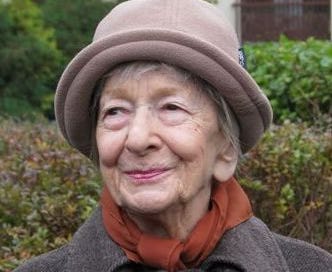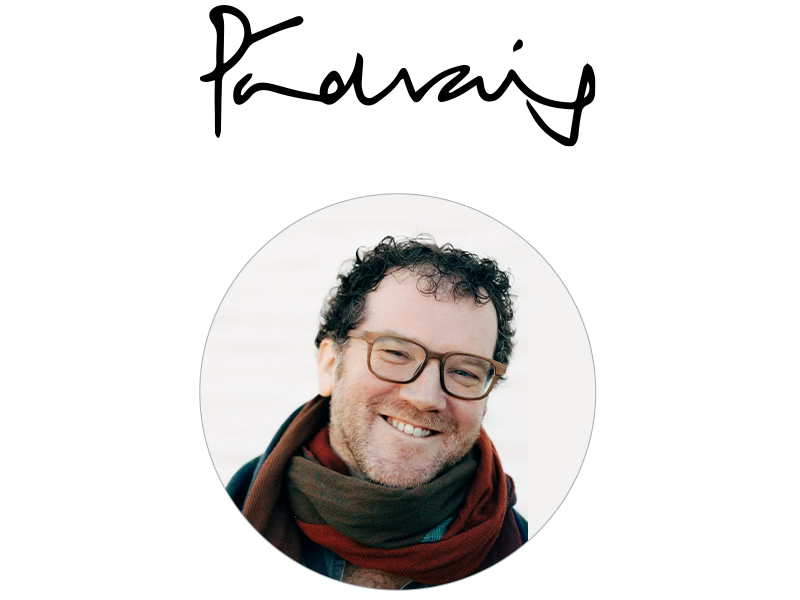

Discover more from Poetry Unbound
Dear friends,
At the end of 2023, I asked if you had particular questions about poetry or Poetry Unbound. Occasionally, I delve into that treasure trove of queries and use it as inspiration for the weekly newsletter.
However, there were some questions that felt like they deserved more attention, namely questions about poetry and conflict:
How does poetry interact or intervene with the political? What makes poetry such a threat that poets are silenced in war? Can poems speak to world events? My question is this: What does poetry say to the suffering in Gaza and Israel? How can poetry help us surmount the sorrow and turmoil existing in our present world?
I’d long had the idea to do a small series of Poetry Unbound episodes featuring poems and poets whose work circles around questions of violence, division, human community, connection, and polarisation. And so, for this week, Monday to Friday, we have such a miniseries, and we’re calling it “Poems as Teachers: Conflict and the Human Condition.”
Set down this! (as T.S. Eliot says): No poem gives an answer to the brilliant questions above. This week of Poetry Unbound offerings features poems as teachers — with wisdom, protest, assertion, curiosity, understanding, refusal, strangeness, dreams, declaration, and admission. A poem is not a tract or a slogan. A poem is its own beast, and the work we feature this week may feel like it dovetails with your point of view on contemporary conflicts, or not. Despite my strong opinions, it’s not my job to force poems to agree with me. Rather, I wish to amplify the work of brilliant poets who know much about violence and war.
I’ll write a brief update on Substack every day of this miniseries, and you’re welcome to comment about the poem of the day. I’ll also use this forum as a way to take feedback and consider how we continue to consider poems as teachers.
There should already be an introductory episode in your podcast feed (linked below👇), giving a broad outline of the week. However, even in an intro, I wanted to make sure we featured poetry, so this episode has a brief consideration of “A Word on Statistics” by the brilliant Polish Nobel laureate Wisława Szymborska (1923-2012). Have a listen, and let me know what comes to mind as you engage with the peculiar, exaggerated, pained, insightful, and fanciful statistics of that extraordinary poet.
Friends, see you in the comments.
PS: This week’s offerings have been the result of a huge effort on behalf of the On Being team. What a joy it is to be part of a group of people committed to this work. My deep thanks for the collegiality and attention from everyone involved.
The Latest from Poetry Unbound: Episode 01
Poetry in the World
A list of events: Online; in the US (Pittsburgh PA, Camden ME, Boone NC, Rhinebeck NY); Greece; England; and the Scottish island of Iona
May 14, Pittsburgh, Pennsylvania, US
For you theologically interested folks, I’ll be speaking at the Festival of Homiletics. Info here.
May 17 at 2–4pm, Camden, Maine, US
I’ll be talking about the word “you” in poetry at the Camden Public Library. You can attend in person or over Zoom. The entire two-day festival is free; information here.
May 24–26, Boone, North Carolina, US
I’m leading a a 48-hour Poetry Unbound retreat, where there will be poetry readings, responding to prompts, and sharing. Information and registration here.
June 27–July 7, Patmos, Greece
I’m one of the speakers at the 10-night “Journeying into Common Good” salon, together with Krista Tippett, Allison Russell, JT Nero, and Joe Henry. More details here.
August 7 at 6-7:30pm (Eastern Time, US), online
I’ll be exploring conflict and change through poetry at an online event in partnership with the International Center for Cooperation and Conflict Resolution at Columbia University. You can register for free here.
August 23–25, Northamptonshire, England
I’ll be at the Greenbelt Festival, and, among other events, I will be interviewing the brilliant Jenny Mitchell (whose poem “A Man in Love with Plants” we featured on a Season 7 episode of Poetry Unbound). You can go here to learn about the festival.
October 6–11, Rhinebeck, New York, US
I’m back for a week at Omega (just two hours north of NYC) for a week of reflection on poetry, poetry prompts, and group discussions. Expect lovely people, gorgeous surroundings and food, and conversations about how poetry opens your world. Learn more here.
March 10–15 and March 18–23 2025, Isle of Iona, Scotland
I’m holding two Poetry Unbound retreats on the gorgeous Scottish island of Iona. Each retreat is the same, so book whichever one works for you. Information is available here.
Subscribe to Poetry Unbound
Open your world with poetry
















I've followed this substack for a long time, but never made a comment. But I wanted to share how writing a poem can be an act of mutual healing in violent spaces. I teach in a trailer school in Baltimore with teens who are in very challenging neighborhoods, and one way we work out disagreements when they happen is for them to write a poem together about their differences -- make it one poem even if it contains disagreement. I do lots of other writing with them, but this one has led to lots of openness. A few weeks ago one team then used the erasure technique to make the poem, in their words "take out the hate but leave the hurt."
I am so looking forward to these episodes. I always try to incorporate art into the classes that I teach, especially when the classes don’t directly deal with art— it affords students a chance to re-orient themselves to new sets of experiences, to apply past learning to new contexts, to embody their knowledge and experiences.
But poetry is so my wheelhouse , and it is such a challenge for me to discuss. I don’t really know how to analyze or interpret it. Maybe it’s a fear of feeling like I need the answers before I pose the questions, and as Pádraig wrote, poetry isn’t here to give us the answers.
So I’ll throw a question back to the Substack crew: how would you introduce poetry in a non-poetry class?